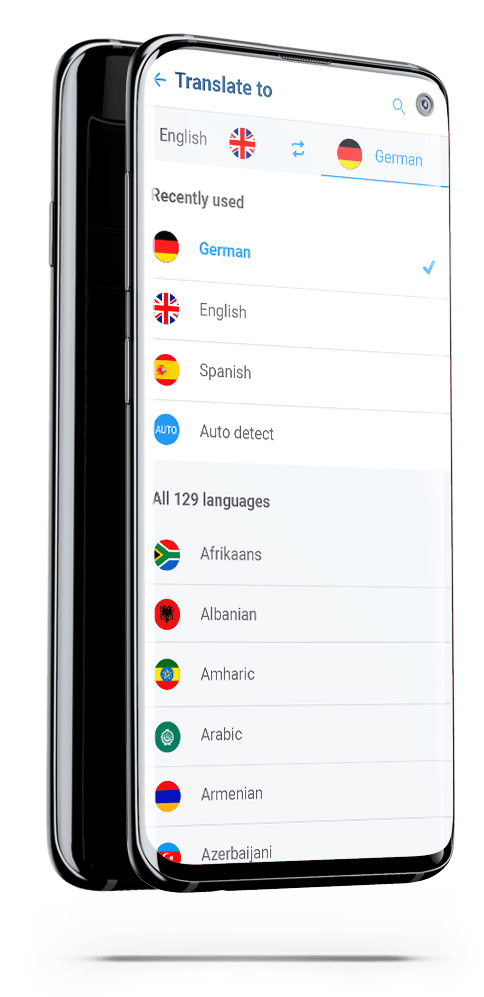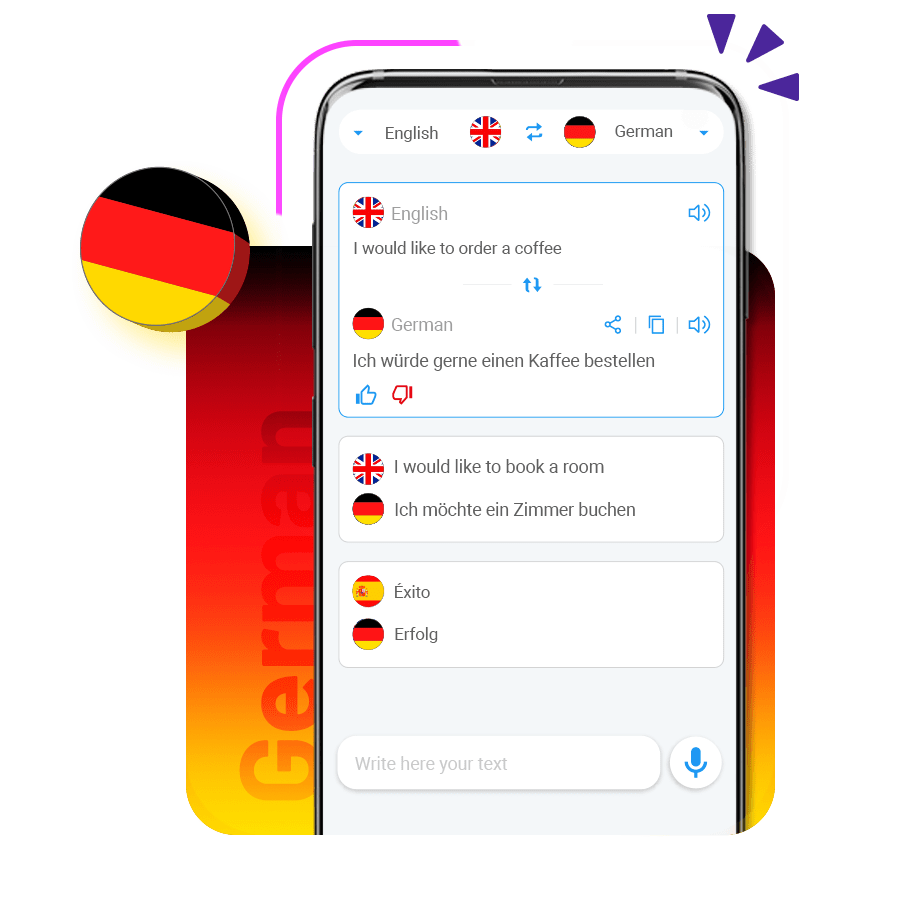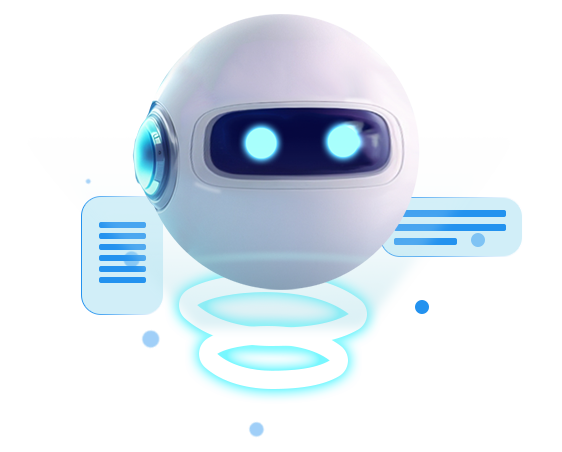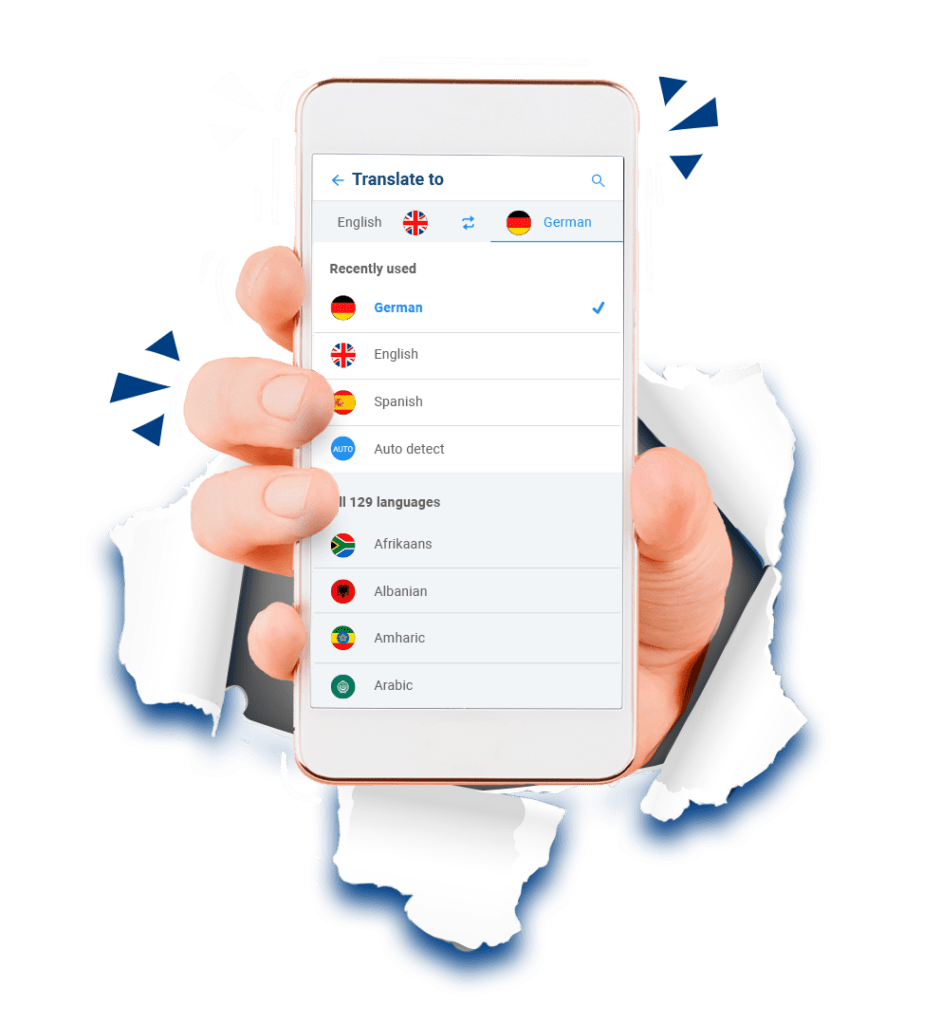Why is it important to be able to translate into the German language?

Where is it spoken?
Germany – Austria – Switzerland – Liechtenstein – Luxembourg – Communities in Belgium and Italy (Südtirol)

Nº of speakers
130 million

Linguistic family
Indo-European – Germanic – West Germanic
German is an important language, connecting us to countries that lead in economics, politics, and culture. It is one of the EU’s top three sought-after languages for work opportunities.
Translating into German language makes available a range of literary, scientific, and technical resources.
Besides, Germany is known for its expertise in engineering and manufacturing, making the language essential for global business and trade.
Germany’s rich and diverse culture and education provide valuable perspectives on philosophy, music, and literature. Luminaries such as Kant, Beethoven, and Goethe have indelibly shaped our intellectual inheritance.
Learning German or translating into German language allows us to not only acquire linguistic proficiency, but also unlock a cultural legacy that continues to impact the global stage.

The most translated languages into German language
Learn to speak in German language like a true native
Advanced vocabulary
| English | German |
|---|---|
| Friendship | Freundschaft |
| Joy of Living | Lebensfreude |
| Longing | Sehnsucht |
| Education | Bildung |
| Homeland | Heimat |
Other interesting facts about the German language
- The German language includes an additional letter: the “ß” (also known as “Eszett” or “scharfes S”), which represents a sharp or strong S sound. This letter is used alongside the 26 letters of the Latin alphabet.
- Inventor of the printing press: Johannes Gutenberg, a German, is credited with inventing the movable type printing press in Europe, which revolutionised the dissemination of knowledge.
- Notable for compound words: German is renowned for its extremely long compound words. For instance, “Donaudampfschifffahrtsgesellschaftskapitän” which means captain of the Danube steamship company.
- The language of philosophy: Many philosophical terms have a German origin, such as “Zeitgeist” and “Weltanschauung”.
- Precise pronunciation: German pronunciation is highly phonetic, enabling accurate pronunciation of almost any word when letter sounds are understood.
- Variety of Dialects: Germany has a wide variety of dialects, with some being so distinct that they may be difficult for speakers from other regions of the country to comprehend.
- German in the United States: There are communities throughout the US, specifically in Pennsylvania, where a dialect of German known as “Pennsylvania Dutch” is utilized.
- Influence on English: Many English words have Germanic origins, with “kindergarten” being one example.
- Language of inventors: Germans have made significant contributions to the fields of medicine, psychology, and philosophy resulting in many technical terms being of German origin.
- Unique Expressions: The German language includes some words that are difficult to translate directly into other languages, such as “Schadenfreude” (pleasure derived from someone else’s misfortune).
We offer German language support in multiple services


Audio and Text Translation
German language translator among over 125 available languages.

Remote Conversation Translation
Speak and translate to German with people anywhere in the world remotely.

Real-time Translation
Speak freely. Translate German instantly in real-time.

Audio Playback of the Translation
Listen to the audio of the German translation to improve your pronunciation.

Voice Recognition
Speak freely and your app will translate for and to you.












